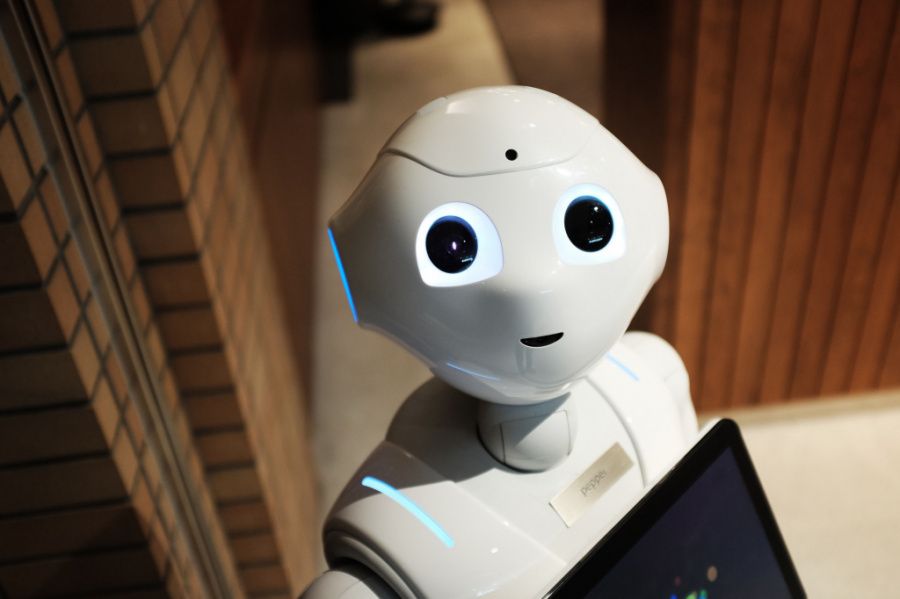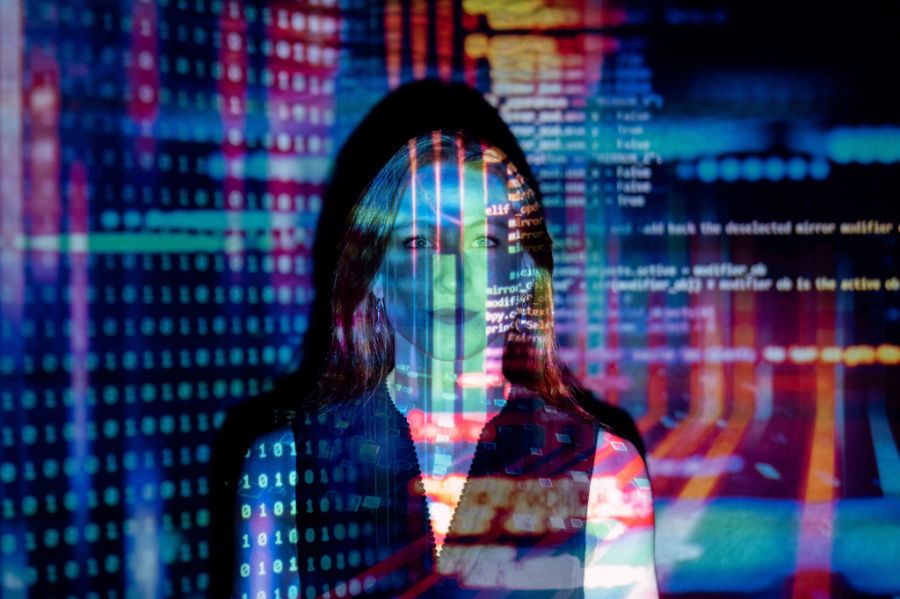Digitization in times of COVID-19; 4 Technologies that Flourish Amidst the Lockdown

As the contour of 2020 and the first quarter (Q1) of 2021 has been progressively defined by the Covid-19 pandemic, digitalization has been like a vessel laden with technology that has an enormous capacity for stirring up mankind's prevent against contagious disease.
The use of Artificial Intelligence (AI) and blockchain technology increased significantly. CoinIdol, a world blockchain news outlet, created an overview of digital technologies that saw wide adoption during the pandemic and the lockdown.
Artificial Intelligence
The use of Artificial Intelligence (AI) increased in healthcare by 67%, according to the data by KPMG. Artificial Intelligence technology has been used to brush up predictive maintenance, examine huge amounts of information from images and audio to irregularities in automatic engines or assembly lines. Particular deep learning techniques are now being innovated to tailor an AI for achieving specific targets and tasks.
Artificial Intelligence has been used in monitoring Coronavirus cases. Based on the information obtained from crucial statistics and clinical framework, AI technology may give analytic data for resource distribution, analyzing and decision-making by arraying the prerequisite of ventilators, drugs and respiratory supports in the healthcare facilities especially in Intensive Care Unit (ICU). Generally, AI has played an important role in the battle against Coronavirus pandemic.

Other applications of AI that have garnered and continue to gather massive interest in the fight against the pandemic include; prediction and tracking of Covid-19 - AI can be used to forecast the spread of Covid-19 and create early warning structures by extracting data from online platforms, call centers and news outlets and offer expedient info about the susceptible countries or regions and for forecasting of mortality rate and morbidity.
The AI has also been used in contact tracing, monitoring of Coronavirus cases, in early diagnosis such as the detection and quantification of coronavirus cases from CT scan images plus chest x-rays and this has been done using a deep learning model dubbed COVNet. AI has also been deployed to reduce the affliction from medical practitioners as well as healthcare staff.
The AI has also been used in predicting the structure vital proteins important for Covid-19 entry and imitation and offer beneficial insight which has laid the foundation for drug or vaccine development within the shortest time possible. AI is also being used to curb the spread of misinformation (infodemic), in development of Covid-19 drugs, testing kits and vaccines, in development of therapeutics, in genomics and many others.
Blockchain technology
Blockchain has played a big part and gives a large platform for managing and combating the pandemic. During the period of the pandemic, the distributed ledger technology (DLT) has helped in introducing immutability and information origin while detaching single point of failure in the network. With blockchain data tracker, it has been easy for any user who has access to the Internet to learn real-time info about the pandemic in a flash-like span, secure, transparent and trustable mode.
The traditional technologies or platforms including clinical laboratories and public healthcare facilities, have been lacking trustable data that would adequately give the accurate info about the virus. blockchain technology (BT) has played an important role in tracing and tracking the spread of the Covid-19 easily, detecting high-risk patients, and has proved to be greatly competent and effective in controlling the infection in real-time.

DLT supports distributed, immutable, encrypted, and protected logging of electronic data. The technology has been leveraged worldwide in tracking the spread of the infection by installing blockchain-based apps on people’s smart mobile devices. The technology is also deployed in the healthcare sector on a large-scale to store and preserve patient’s data digitally. Blockchain technology has also streamlined the fast-tracking of vaccine and drug trials, and has also been highly used in transparent tracking the activities related to fundraising and donations meant to help the Covid-19 affected regions. Blockchain has successfully been used to track the Covid-19 patient’s moment and give real-time information about the hit regions and directing preventive efforts.
Some cases of DLT for coronavirus plague include Hashlog, a project developed by Acoer; VeChain, a DLT-powered platform created to monitor the manufacture of Covid-19 vaccine in China; PHBC, a DLT-powered platform deployed for anonymous verification of workplaces which don’t have or have not registered cases of Covid-19 to help these communities stay safe from the virus; Hyperchain, a donation-based podium created to enable governments as well as healthcare institutions to effectively and transparently process donations meant for Covid-19 patients; etc. Global spending on DLT solutions is projected to increase from about 3 billion in 2020 to about 16 billion by 2023.
Internet of Things
Other technologies that registered massive adoption in the pandemic era include the Internet of Things. In the context of the pandemic, IoT-based devices or apps have been used to reduce the possible spread of the virus infected people to normal ones by early diagnosis, keeping an eye on victims, and performing defined protocols after patient recovery.
Among other solutions involving the Internet of Things tech are smart home systems, autonomous equipment for farming and industry, cybersecurity scanners, wireless trackers for inventory and shipment, etc.
As all industries started switching to digital tools for running their business instead of physical ones, the demand for new solutions is expected to grow further. According to the data by Forrester Research, the solutions for 5G connectivity, which also belong to the IoT, are expected to increase by 20% at least in 2021.

Machine Learning
Machine Learning (ML) is a technology that uses computer programs that are able to improve itself without the interference of developers. The systems analyse the accessed data to seek and apply patterns that allow for making better decisions or achieving greater results.
Currently, the technology has been deployed for a better understanding of the nature of the Coronavirus and further used to forecast the forthcoming issues. In healthcare, ML-based solutions are widely applied for diagnostics of various diseases.
Outside healthcare, the tech is employed in speech and image recognition, statistics compilation (which also plays a significant part during the pandemic), creating classifications and forecasts. As of now, the full-fledged adoption of the technology is mainly hindered by the lack of specialists. According to a Vote AI ML Use Cases 2021 survey, only 32% of software engineers and developers have the expertise in ML solutions. While the demand for professionals in the sphere is much higher.

Blockchain is leading the game
However, blockchain is still the leader in adoption. According to the PWC report, about 78% of financial institutions have adopted the tech as part of an in-production system. One key use of blockchain that has gathered much interest worldwide is cryptocurrency, especially Bitcoin.
Governments and the World Health Organization (WHO) have encouraged people to use digital payment means including cryptocurrencies to stop the spread of the pandemic. Blockchain.com wallets, a platform that enables users to buy or sell Bitcoin, hit more 63 million wallet users in December last year. The technology has enabled banking institutions to lower outrageous bureaucracy, carry out swift transactions at cheaper costs, and enhanced their secrecy. The number of DLT wallet users globally have increased from 43.04 million in October 2019 before the coming of Covid-19 pandemic to 68.24 million on February 22, 2021, according to the data by Statista.
Generally, these technologies have contributed a lot to reach this far, they have protected me and you and other people to be still breathing – out of more than 119,918,534 cases globally, over 2,655,884 people kicked the bucket of Covid-19 disease, and 96,485,117 recovered. The number would have been much higher without these technologies thanks to blockchain, IoT, AI, machine learning and cryptocurrency.
Price
News
News
Price
Coin expert

(0 comments)